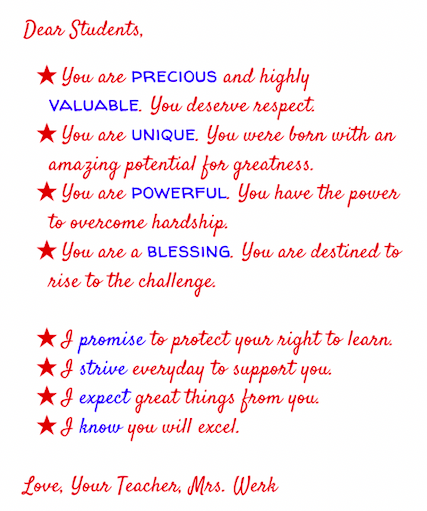
I think this topic, the biblical worldview of children, warranted a second part because there are so many implications to what I communicated in my last post.
If we believe that our worldview is biblical, then let’s review what the Bible says about children and how we should treat them. There are 3 main ideas about the biblical worldview of children that are prominent.
The Bible Says Children are a Blessing
We know Psalm 127:5-7 says that children are a heritage, gift, or blessing. If my children are a gift I’m going to treat them as precious and be grateful for what they add to my life. Now we all know there’s going to be that student who tests your patience, but that too is a gift.
What this means to me is that when students arrive at school and you see them, greet them like a long list friend that you’ve been waiting to see for a long time. Use a high pitched voice. Call them by name. Ask them how they’re doing. Cheer them on when they share their life with you. Remind them of how precious they are.
There’s a letter I write to my students to set the tone for my love for them and how precious I think they are. I read it to them several times at the beginning of the year and periodically during the year when they need a reminder.
It says they are precious, highly valuable, unique, powerful, and a blessing. Then I go on to explain how that changes everything. It’s a beautiful way to inspire and remind students of their worth and dignity. It’s filled with biblical ideas and implications about the biblical worldview of children.
The Bible Says Children are an Heritage (Legacy)
Now let’s talk about the second part of the biblical worldview of children and what that means for them. Legacy is something that is passed down from one generation to the next. We as teachers have the privilege to model for students values that they may have never seen before. If they witness you getting angry and being impatient, then they will think that’s normal and will model the same. If they think you don’t have time for them, they will be neglected and feel isolated. That might make them treat others the same way.
When I think about my students, I want them to be focused, diligent, and wise. I want them to know their worth and value their family and friends. I want them to love America and stand up for her principles. When my students leave our class for the year, I want them to have good memories and walk away with confidence in their accomplishments.
This is the legacy I want them to carry on. I don’t remember much about my second grade but I do have memories of other grades. I want to create opportunities for my students to achieve, win, or be recognized for who they are.
My class will be one of love, respect, responsibility, and most of all love of learning. I reject the idea that students are a burden. In a biblical worldview, children are so precious that I take seriously my responsibility to model good behavior for them and my duty to inspire them to love learning.
